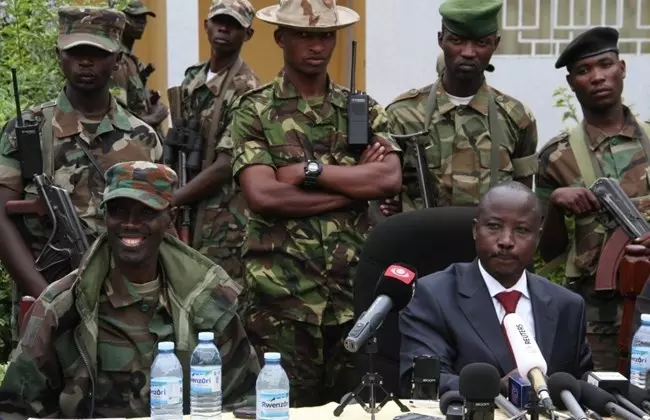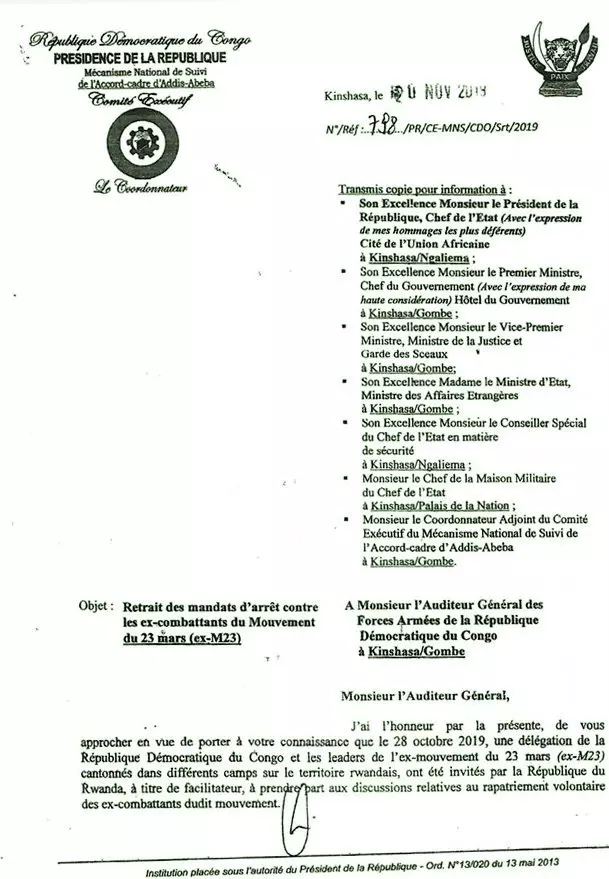
DR Congo President Felix Tshisekedi has withdrawn all arrest warrants standing against leaders of defeated rebel outfit M23 movement – prompting fierce reaction in Congo.
Tshisekedi also demanded, in a directive to the DR Congo army’s military prosecutor, to remove all impediments to allow the integration of the former M23 rebels into the government army or FARDC. บาคาร่า ทดลอง
The M23 movement was founded in the east, as a replacement for another rebel force called CNDP. It disintegrated following joint government and MONUSCO military operations. The rebels fled to Uganda and Rwanda.
In July 2013, Kinshasa issued arrest warrants against the leaders of the dismantled force. However, the foot solders remain in camps in Rwanda and Uganda – but the leaders are nowhere to be seen.
Congo said at the time that the warrants were for crimes against humanity, war crimes, torture and other offenses. Kinshasa also said it at the time that it was “awaiting with interest” for a response from Rwanda. It never came.
The wanted four were M23 president Bishop Jean-Marie Runiga and military commanders Baudouin Ngaruye, Eric Badege and Innocent Zimurinda.
In addition, back in 2006, the DRC also issued an arrest warrant against Gen Laurent Nkunda, the flamboyant leader of CNDP, the predecessor to M23.
When Nkunda’s forces had been cornered in the east, Rwanda announced he had been arrested and detained. Despite months of legal petitions by his wife seeking his release, the Rwanda government simply ignored the noises. He has never appeared anywhere publicly since.
Fast forward, in December 2018, and current President Tshisekedi controversially wins hotly contested election. He has been reversing many decisions taken by his predecessor. To that list, the arrest warrants can now be added.
A DRC government delegation met the M23 leaders in Rwanda on October 28 2019. The former rebels demanded the removal of the arrest warrants and reintegration into the country’s politico-military structures.
Tshisekedi’s backers say removing such hurdles will do away with any scapegoats for the M23 to resume rebel activities. The inter-congolese collaboration is what will bring peace, they argue.
Tshisekedi has also publicly pledged to work with neighbours to defeat all rebels groups in his country. In May 2019, he signed a tripartite agreement with Rwanda and Angola and has since been attempting to work with other neighbours, including Uganda, Tanzania and Burundi.
Last month, senior military officers from DRC, Uganda, Tanzania, Rwanda and Burundi reportedly met in the Eastern town of Goma and discussed plans of how to fight and defeat rebels in the DRC.
However, since Tshisekedi’s directive came to public attention through social media on Friday, there have been few voices of support for his initiative. Some are accusing him of giving in to Rwanda while others accuse his government of being weak, arguing that rescinding the warrants will allow the rebel leaders to go back to terrorise Congolese.
It remains to be seen whether Nkunda will also come out of his hiding and return to Congo with other former rebels.
See President Felix Tshisekedi’s directive below:



